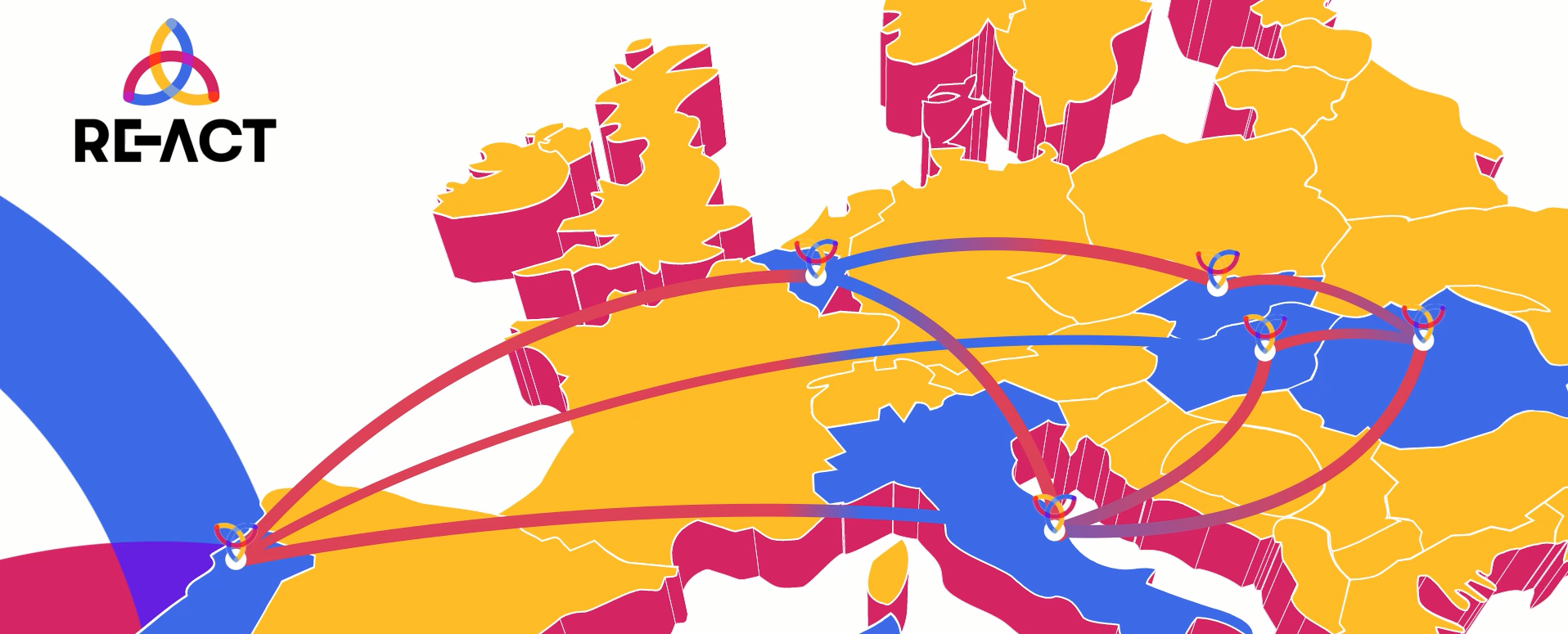The RE-ACT consortium is proud to present the resources developed during the project and now available for free to all those interested in strengthening their contribution to regional policies, regional innovation and quadruple helix collaboration! These resources are most useful for Higher Education Institutions but also for other regional stakeholders, as long as they are interested in improving their awareness, contributing and benefiting from their position in the regional ecosystem.
If you want to start with an overview of RE-ACT’s objectives and results, check out our teaser video. Curious for a bit more? Then, see the 4 leaflets that briefly present the main results of the project:
Leaflet 1: SUNAR self-assessment tool
Leaflet 2: Training package for Higher Education Institutions (HEIs)
Leaflet 3: Training package for Other Stakeholders
Leaflet 4: RE-ACT Framework and White Paper
If you are interested in exploring one or more of these resources in more detail, follow the links below to have direct access:
SUNAR self-assessment tool: This tool is the central exploitable result of the project that allows HEIs to self-reflect and assess their contribution to regional development, helping them to understand, among other issues, how well they fulfil their mission and reach out to others.
Training package for Higher Education Institutions (HEIs): The RE-ACT training package for HEIs aims to contribute to enhancing the self and shared perception about HEIs’ current positioning and awareness about the latent potential for HEIs to play a pivotal role in regional development strategies.
Training package for Other Stakeholders: The RE-ACT training package for regional stakeholders from the quadruple helix (other than Higher Education Institutions HEIs) offers a journey through the key concepts related to RIS3 and regional development, preparing organisations and individuals to fruitfully engage in regional collaboration.
RE-ACT Framework and White Paper: The RE-ACT Framework consists of a step-by-step methodology for the replication of the RE-ACT approach and effective use of the results produced. As a complement and follow-up to the Framework, the White Paper includes recommendations related to regional collaboration gathered from participants’ experiences and lessons learned from the project’s activities.




